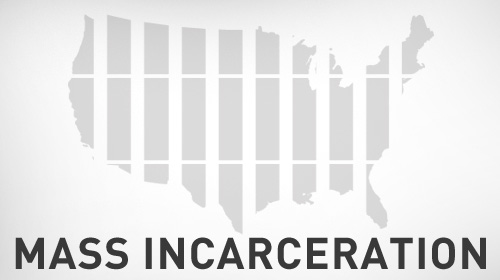
"Too many Americans go to too many prisons for too long for no good law enforcement reason."
That's what Attorney General Eric Holder said in an historic speech before the American Bar Association earlier this year. He was talking about people like and the many other men and women who are serving long sentences for non-violent offenses.
Hamedah's story begins when she moved in with her cousin in order to flee a physically abusive relationship. Her cousin began to ask her to run errands—like making phone calls and picking up money—related to his drug conspiracy. After getting arrested and despite her previously clean record, the sentencing judge found his hands tied by mandatory minimums and initially sentenced her to a life sentence for a first-time, nonviolent drug crime.
Almost half of the 219,000 people currently in federal prison are serving time for drug-related crimes, and the majority of those cases are non-violent. At the same time, the Federal Bureau of Prisons makes up more than 25 percent of the Department of Justice's budget. Needless to say, this has drawn the attention of Congress.
The good news is, after 19 years in prison, Hamedah was released last year as a result of the U.S. Sentencing Commission's retroactive application of the new crack cocaine sentencing guidelines. But Hamedah's story is sadly neither unusual nor unique. Instead, it is all too commonplace: a judge is unable to administer the justice they deem fair, and a person is locked up for an overly harsh prison sentence.
Earlier this year, Sens. Richard Durbin (D-Ill.), Mike Lee (R-Ut.), and Patrick Leahy (D-Vt.) introduced the , comprehensive legislation that would reduce the length of some drug mandatory minimum sentences and allow judges to use more discretion to determine sentences for non-violent drug offenses. It would also apply the Fair Sentencing Act—which reduced the crack-powder cocaine sentencing disparity—to those currently serving sentences for these offenses.
And today Reps. Bobby Scott (D-Va.) and Raul Labrador (R-Id.) introduced their own version of the Smarter Sentencing Act in the House of Representatives.
The Smarter Sentencing Act would reduce some drug mandatory minimums from 10 and five years to five and two years, respectively. It would prevent women like Hamedah from serving more time in prison than those who are actually responsible for serious and violent drug crime in this country.
Hamedah is home, but it's time to do more to help the tens of thousands like her who are still incarcerated across the country. It's time to pass the Smarter Sentencing Act.
Learn more about drug law reform and other civil liberty issues: Sign up for breaking news alerts,, and .
